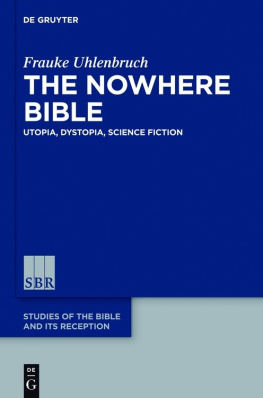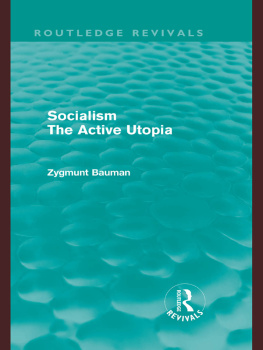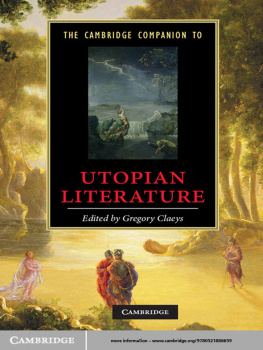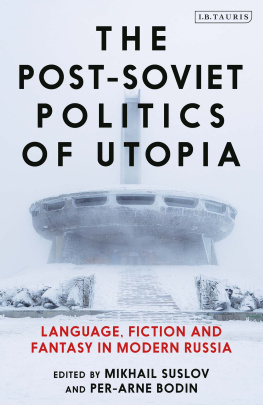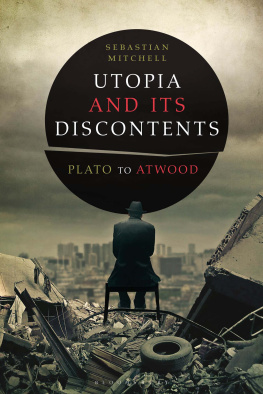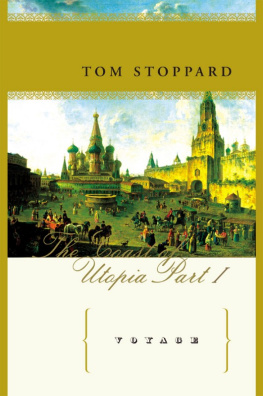RED STAR
Soviet History, Politics, Society, and Thought
James Michael Holquist and
Alexander Rabinowitch,
general editors
ADVISORY BOARD
Katerina Clark
Stephen F. Cohen
Murray Feshbach
Loren Graham
Gail W. Lapidus
Moshe Lewin
Sidney Monas
S. Frederick Starr

RED STAR
The First Bolshevik Utopia
Alexander Bogdanov
Red Star
Engineer Menni
A Martian Stranded on Earth
EDITED BY
Loren R. Graham and Richard Stites
TRANSLATED BY
Charles Rougle
INDIANA UNIVERSITY PRESS
B LOOMINGTON AND I NDIANAPOLIS
This book is a publication of
Indiana University Press
601 North Morton Street
Bloomington, Indiana 47404-3797 USA
http://iupress.indiana.edu
Telephone orders 800-842-6796
Fax orders 812-855-7931
Orders by e-mail
1984 by Indiana University Press
All rights reserved
No part of this book may be reproduced or utilized in any form or by any means, electronic or mechanical, including photocopying and recording, or by any information storage and retrieval system, without permission in writing from the publisher. The Association of American University Presses Resolution on Permissions constitutes the only exception to this prohibition.
The paper used in this publication meets the minimum requirements of American National Standard for Information SciencesPermanence of Paper for Printed Library Materials, ANSI Z39.48-1984.
Manufactured in the United States of America
Cataloging information is available from the Library of Congress.
Library of Congress Cataloging in Publication Data
Bogdanov, A. (Aleksandr), 18731928. Red star. (Soviet history, politics, society, and thought) Contents: Red starEngineer MenniMartian stranded on Earth. 1. Bogdanov, A. (Aleksandr), 18731928Translations, English. I. Graham, Loren R. II. Stites, Richard. III. Rougle, Charles, 1946 IV. Title. V. Series.
PG3467.M29A27 1984 897.133 83-48637 ISBN 978-0-253-17350-8
ISBN 978-0-253-20317-5 (pbk.) 5 6 7 8 9 12 11 10 09 08 07
CONTENTS
/ Richard Stites
/ Loren R. Graham
Preface
The first edition of Red Star appeared in St. Petersburg in 1908. It was reissued in Petrograd and in Moscow in 1918, and again in Moscow in 1922. A stage version was produced by Proletcult theater in 1920. In 1928, after Bogdanovs death, it was published as a supplement to Around the World . It was not again reissued in the Soviet Union for almost fifty years, until 1979, when it was anthologized in a slightly expurgated version in the collection The Eternal Sun: Russian Social Utopia and Science Fiction. It appeared in a German translation in 1923, and this was reprinted in 1972. An Esperanto edition came out in Leipzig in 1929, celebrating, no doubt, the Esperantists admiration of unilingual utopias. The first English translation recently appeared in Pre-Revolutionary Russian Science Fiction: An Anthology (1982), edited by Leland Fetzer. There were at least six editions of Engineer Menni between 1913 and 1923, and it was reissued also by Around the World in 1929. The present translations are of the original 1908 and 1913 editions. Chronologically, Engineer Menni comes first as a historical novel about the social revolution on Mars long before Leonids voyage of 190506. We have placed Red Star first, however, because it was written first and because this order makes for better reading. As a writer, Bogdanov was no master of style, and so we have given preference to clarity over literalness of translation, without omitting or violating anything essential. For the Martian place names, we have used the standard classical terminology still employed by astronomers (and used by Bogdanov in Russian translation). The illustrations for Red Star are taken from the 1923 Moscow edition.
The editors and translator wish to thank the following people for reading and commenting on our work: in Philadelphia, Mark Adams; in New York, Abraham Ascher and Kenneth Jensen; in Leeds, Moira Donald; in Washington, D.C., Murray Feshbach; in Helsinki, Ben Hell-man, Eugene Holman, Pekka Pesonen, and Ilmari Susiluoto; in Turku, Kurt Johansson; in Berkeley, Louise McReynolds; in Freiburg, Thomas Markowsky; in Montreal, Darko Suvin. Charles Rougle and Richard Stites thank each other for what Bogdanov would have called our comradely exchange of labor in Helsinki in the summer of 1982. Loren Graham and Richard Stites thank each other for joining together our once independent projects. We all thank Janet Rabinowitch of Indiana University Press for her stubborn faith in our work.
RED STAR
FANTASY AND REVOLUTION
Alexander Bogdanov and the Origins of Bolshevik Science Fiction
Richard Stites
Blood is being shed [down there] for the sake of a better future, says the Martian to the hero of Red Star as they are ascending to Mars. But in order to wage the struggle we must know that future. The blood he speaks of was the blood of workers shot down in the streets of St. Petersburg, of revolutionaries put against the wall of prison courtyards, of insurgent sailors and soldiers, of Jewish victims of pogroms in the Russian Revolution of 1905. And by that better future he means not the immediate outcome of the revolution but the radiant future of socialism that will dawn on earth after revolution has triumphed everywhere. In order to inspect the coming socialist order, the heroa Bolshevik activist named Leonidhas accepted the invitation of a Martian visitor to fly with him and his crew to Mars.
In this manner Alexander Bogdanov, a major prophet of the Bolshevik movement and one of its most versatile writers and thinkers, begins his Utopian science fiction novel Red Star , first published in 1908. The red star is Mars; but it is also the dream set to paper of the kind of society that could emerge on Earth after the dual victory of the scientific-technical revolution and the social revolution. Bogdanov, a professional revolutionary, was one of those people, peculiar to revolutionary societies of our century, who moved easily back and forth between the barricade and the study table, the prison cell and the laboratory. He was a physician and a man of science; and he was the first in Russian fiction to combine a technical utopia, grounded in the latest scientific theories of the time, with the ideas of revolutionary Marxism. This was the central theme of both Red Star and his other novel, Engineer Menni.
Bogdanovs revolutionary Martian fantasy grew out of his personal experiences as a Marxist during the Revolution of 1905, the popularity of science fiction in Russia around the turn of the century, and his still developing theory of tectology, the science of systems thinking and organization. Bogdanov was born in Tula in 1873 to an educated family, studied science and psychology in Moscow and Kharkov, and received a medical degree in 1899. By that time he had also become a Populist and then a Marxist. On the surface, Bogdanovs path from medicine to revolution appears typical of radical Russians of that age in that so many of themMark Natanson, Fdor Dan, Vera Figner, among othershad begun their love affair with the people by learning how to cure their physical illnesses. Unlike most of them, Bogdanov did not abandon science for revolution: rather, he deepened and extended his study of physiology, technology, and natural science and combined them with his own version of Marxian sociology. An early member of the Marxist Russian Social Democratic Partythe matrix of Bolshevism and MenshevismBogdanov worked as an underground agent, fomenting agitation and disseminating propaganda among workers, students, and educated society in Moscow as well as in provincial towns far distant from the two capitals. In terms of on-the-spot experience, he was one of the best informed of the Social Democrat leaders about actual life and labor conditions in Russian cities. As a physician he was also keenly aware of the social misery of poor people in the burgeoning factory centers of industrializing Russia. His repugnance for the contemporary city reveals itself in his loving description of the Utopian factory settlements of Red Star and the dreadful working conditions in Engineer Menni . Numerous arrests and terms in exile punctuated his revolutionary career, and these experiencesoften called the university education of radicalsthrew him into contact with like-minded young thinkers and rebels such as Anatol Lunacharsky, future Bolshevik Commissar of Education and Culture, Fdor Bazarov, a well-known economist, and I. I. Skvortsov-Stepanov, publicist, economist, and writer on atheism.
Next page


